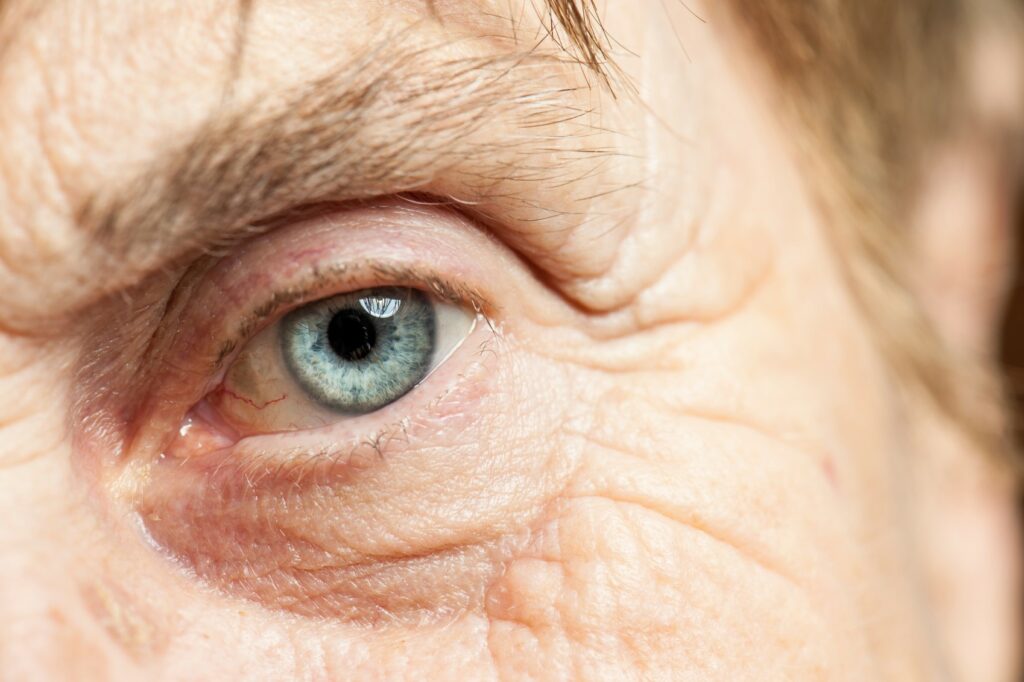Posted by: Associates in Ophthalmology (NJ) in Cataracts, Eye Health
Did you know that cataracts are the leading cause of vision loss in the United States? In fact, there are 24 million Americans over the age of 40 that are affected by cataracts. That’s a lot of people! In support of Cataract Awareness Month, here is some important information you need to know about the leading cause of blindness in the world.

What are Cataracts?
Cataracts occur when the proteins in the lens of the eye begin to clump. The lens of the eye is mainly made up of water and protein. These clumps of protein that build up over time prevent the amount of light that can enter the eye, which results in cloudy vision. Even though cataracts are most often associated with aging eyes, cataracts can affect anyone at any age. In fact, babies can even be born with cataracts. This is called congenital cataracts. However, the majority of cataracts occur in older people. Risk factors for developing cataracts include age, diabetes, disease, smoking, eye injury, a family history of cataracts, the use of certain medications, and overexposure to sunlight and radiation.
Since cataracts are so prevalent, it’s important to be able to recognize the common signs and symptoms of them as they can progress over time and eventually lead to blindness. Cataracts can grow in size over time and begin to cloud more and more of the lens as it becomes less transparent.
5 Symptoms of Cataracts:
- Cloudy or blurry vision (blurry vision is the most common symptom of cataracts)
- Progressive nearsightedness or the need for frequent new prescriptions (due to the progressiveness of cataracts)
- Changes in the way you see colors (colors may seem faded or dull)
- Poor night vision or sensitivity to glare/light
- Double vision in one eye (the perception of two images that are usually overlapping and can occur in one or both eyes)
Keep in mind that these symptoms can also be a sign of other eye problems. If you are experiencing any of these symptoms, be sure to see your eye doctor who will be able to identify the possible cause(s).
Prevention and Diagnosis of Cataracts
Although cataracts cannot be prevented, choosing a healthy lifestyle (by limiting the risk factors you have control over such as smoking, wearing protective sunglasses and having a healthy diet) can slow its progression. Cataracts can be detected during a comprehensive eye exam with an optometrist.
Treatment of Cataracts
Although cataracts aren’t preventable, they are treatable. In the early stages of cataracts, vision may be improved with glasses; however, if glasses don’t help, cataract surgery is a much more effective treatment. Not only is it one of the most common surgeries in the U.S., but it also has a 99% success rate. Cataract surgery consists of replacing the clouded lens with an artificial, clear intraocular lens (IOL). The whole procedure from start to finish only takes about 20 minutes. By age 80, more than half of all Americans either have a cataract or have had cataract surgery. If you have cataracts in both eyes, surgery will be done on one eye at a time at separate times. Similar to LASIK, most cataract patients will notice an immediate change in their vision following the procedure.
Cataract Treatment at Associates in Ophthalmology
Located in Livingston, New Jersey, Associates in Ophthalmology has been helping our patients achieve clear vision for over 30 years. We are one of the first medical offices in the state to offer laser cataract surgery with the Catalys® Precision Laser System which is 10 times more accurate than when performed manually. Catalys technology is the new standard in precision cataract surgery because it provides a highly customized procedure that makes it easier to remove the cataract by softening the lens. If you would like to schedule a comprehensive eye exam, or would like to learn more about cataract surgery and IOLs, don’t hesitate to contact us. You can also book a free consultation with Dr. Miller to find out if cataract surgery is right for you. During the consultation, the doctor will talk to you about the risks associated with cataract surgery in addition to what you can expect after surgery.

